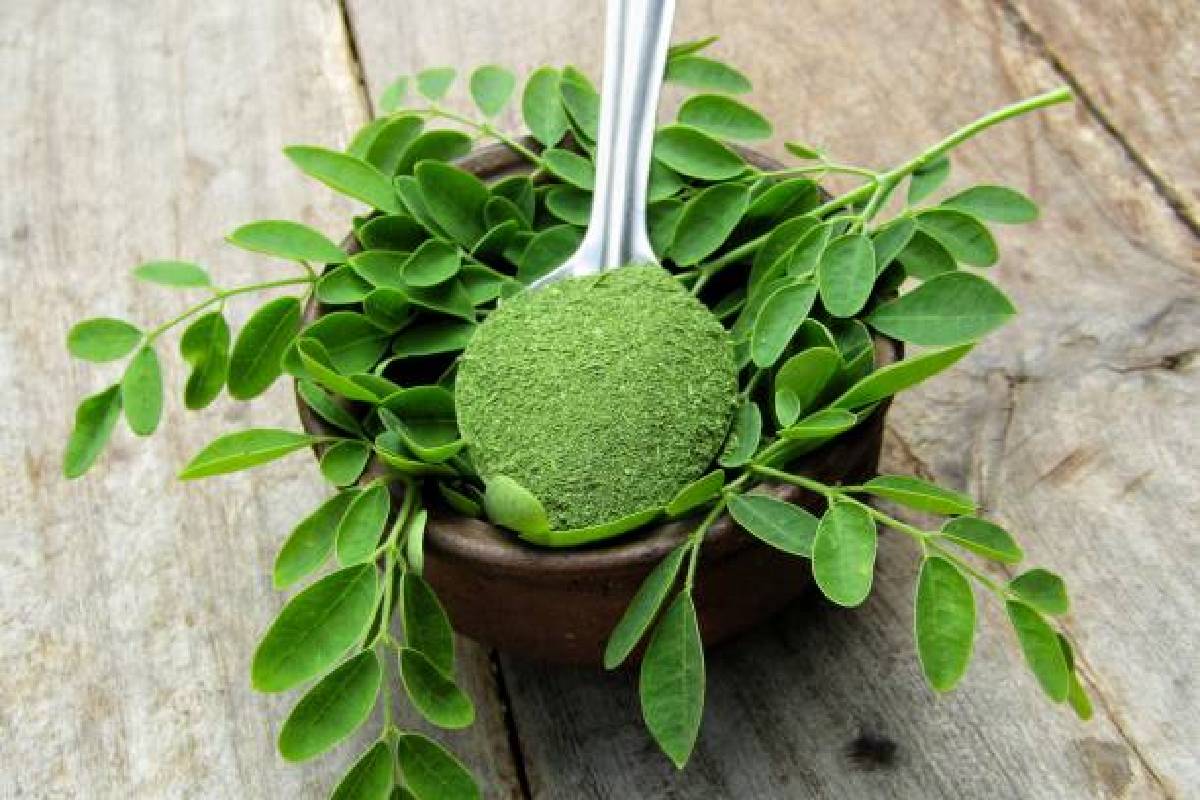There is a solid reason why the moringa tree is frequently referred to as the “wonder tree.” The therapeutic qualities of the tree extend to its leaves, fruit, sap, oil, roots, bark, seeds, pod, as well as flowers. There are numerous uses for the tree’s byproducts. It is additionally called the “drumstick tree.” Asia, Africa, and South America are where it is most prevalent.
The nutritional value of the moringa leaves is so high that it surpasses that of carrots, oranges, and even milk. Given their versatility and ability to be incorporated into the diet in numerous ways, the leaves are used in Indian cuisine in various ways. The most popular ways to eat them are as veggies for stir-fries and as an addition to juices. The moringa leaves have no adverse effects when taken in their natural state.
Health Benefits of moringa leaves
1. Rich Source of Vitamins And Minerals
Vitamins A, C, B1, B2, riboflavin, B3, niacin, B6, and folate are abundant in moringa leaves. They are also abundant in zinc, phosphorus, calcium, iron, magnesium, and iron.
One cup of moringa leaves contains 2 grams of protein, 8% of the recommended daily allowance of magnesium, 19% of the recommended daily allowance of vitamin B6, 1% of the recommended daily allowance of iron, and 1% of the recommended daily allowance of riboflavin (9 percent of the RDA).
2. Source Of Amino Acids
Amino acids, the building blocks of proteins, are abundant in moringa leaves. They include 18 different types of amino acids, each of which contributes significantly to our well-being.
3. It Helps To Fight Inflammation
Because there are isothiocyanates in moringa leaves, they have an anti-inflammatory effect. They possess niazimicin, which is known to stop the growth of cancer cells. Numerous illnesses, including cancer, arthritis, rheumatoid arthritis, and numerous autoimmune diseases, are mainly brought on by inflammation. The body experiences heightened inflammation after an accident or infection.
Inflammation is essentially a defense mechanism against trauma, but due to a poor lifestyle and a poor diet, it may become worse. Chronic health problems are brought on by long-term inflammation. Consuming moringa leaves can lower inflammation.
4. Protects Liver
Moringa leaves provide many advantages for people with tuberculosis since they lessen the side effects of anti-tubercular medications. The leaves hasten the regeneration of liver cells. The leaves contain a lot of polyphenols, which can prevent and possibly even reverse liver oxidative damage. They raise the liver’s protein levels.
Only when the liver enzymes are normal can the liver typically work, which is where the blood is detoxified, fat is broken down, and nutrients are absorbed. Moringa leaves stabilize these liver enzymes.
5. Protects Against Arsenic Toxicity
Contamination with arsenic is a prevalent problem in much of the world. Our bodies have been exposed to arsenic through various foods, especially rice.
This element can cause cancer and heart disease when exposed to it over an extended period. Research on lab animals has demonstrated the effectiveness of moringa leaves in reducing the damaging effects of arsenic.
6. It helps In Lactation
Moringa leaves enhanced lactation in nursing women in conventional Ayurvedic treatment. The health of the mother and the unborn child is greatly improved by consuming moringa leaves because they are a rich source of protein, vital vitamins, and necessary elements.
7. Moringa is Good For the Nervous System
The use of moringa leaves is effective in treating a variety of neurological illnesses. They act as neuro-enhancers and also promote brain health.
The abundance of vitamins E and C prevents neuronal deterioration and also enhances cognitive performance. Eat moringa leaves frequently if you experience migraines or recurrent headaches.
Because they maintain the production of neurotransmitters, including serotonin, dopamine, and also noradrenaline, which are crucial for memory, mood, and stimulus-response, these leaves also serve as mood stabilizers.
8. Moringa Helps In Detoxification
The natural detoxifying properties of moringa leaves to aid in cleansing the body. By doing so, the body’s defenses against infections are strengthened. They boost the body’s energy levels as well.
Conclusion
The nutritional punch of moringa leaves is strong, and they are also anti-inflammatory. They are a new ” superfood ” type because of their antioxidant and cellular health-preserving qualities. They reduce sugar levels and the development of inflammatory enzymes. Could you include these frequently in your diet to get their numerous health benefits?
